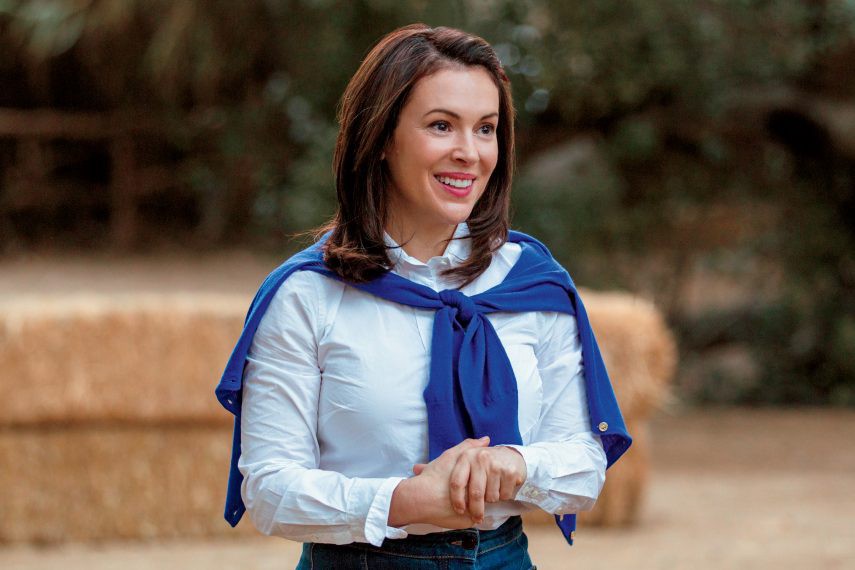There was a time when all I wanted to do was make my first movie. And when sweat, tears and a lot of luck turned into a movie, all I could think about was getting it out into the world — convincing distributors and Showtime viewers and DVD buyers (those brave, defiant three!) to love B-GIRL as I do. It was terrifying and exhilarating. And THEN I learned something new — I didn’t just want to make a movie, I wanted to make ANOTHER one.
So I found myself starting over, back at the beginning of the movie process: finding the financing. For a producer like myself, independent film is about money; no studio is footing the bill so I’ve got to figure out how to pay for the movie and make it for less. Yes this is a creative business, but don’t forget the second word of that name — It’s a Business. And as such, money is the foundation — every creative choice, provocative camera angle or meaningful movie moment depends on raising those funds.
Prepping for a trip to NYC to talk to money people, I started thinking about what I know and sharing lessons I’ve learned to empower filmmakers, hopefully avoiding my pitfalls and mistakes. Many in the Hollywood financing world can be cagey and reluctant to share and I understand that, the competition and frustrations make this seem like a zero-sum game, like my movie won’t get made if yours does. Also we ‘Hollywood types’ fear the mortal sin of seeming anything less than 100% successful and positive. (“How are you?” “Amazing!!”) But we all love movies and movie-makers, it’s why we are in this industry, and a diverse and creative crop of films made every year makes us ALL look good. My plan is to share some insights to hopefully get other interesting filmmakers — especially women — on the path to a great movie. (Just to be clear, this is purely informational — nothing should be taken as legal or investment advice — Really.)
There are three steps in the money cycle of a film:
• Raising money
• Spending this money to make a movie, and
• Generating revenue (money) from the sale of the movie
If everything works out, Step 3 is bigger than Step 1 and all your investors are happy. In order to keep this post shorter than the US tax code, I am limiting today’s focus to the basics of Step 1.
Step 1: Raising the Money
Where does money for independent film come from? While each film’s circumstances are unique, there are three main sources of money for independent films: private equity, foreign pre-sales, and tax incentives.
Private Equity is cash investment in a movie: someone writes you a check to buy a piece of the film. Private equity is available upfront, in cash, and does not earn interest. Private equity is higher risk and higher reward — if the film never makes money, the investor never makes money (big “downside” risk), but if the film makes a LOT of money, the investor gets a piece of everything (high “upside” reward).
If you are making a movie for less than a million dollars this will probably be your biggest and/or only source of money. This is your uncle, your best friend’s dad’s law client, your college roommate’s ex-boyfriend’s new girlfriend’s boss. I really had all of those plus one guy who called me because the secretary gave my message to the wrong junior associate. Equity is insanely hard to find, but it is essential. It is the proof that someone besides you thinks this project has value. It’s “you aren’t totally crazy” money.
Foreign Pre-Sales are funds from the sale of foreign distribution rights before a film is finished. This can occur in two ways: 1) a reliable sales agent estimates the value of the international distribution of the film and a bank lends some of that value using the rights as collateral; or 2) a sales agent sells distribution rights in certain territories and a bank lends a portion of those contracts value using the contracts as collateral.
Two things dictate the feasibility of foreign pre-sales: the sales agent (does the bank trust her/him) and the project, especially the talent and the genre. In today’s market, it is almost impossible to get loans based exclusively on estimates; actual sales contracts are generally required for any bank to loan production funds. Also, “cash-flowing” (turning the commitment of money later into cash now) is expensive — the bank loan will charge interest and require legal fees. If a film has less than one million dollars in foreign pre-sales, it is almost never useful to try to finance this way — the money costs too much.
Foreign sales involve a strange group of people — foreign sales agents. They are the car salesmen of the movie business, focused entirely on the BUSINESS. They will pitch your movie as a thriller, a comedy, a romance, and a heartwarming story about a boy and his dog. When the buyer asks “yes, but does the dog talk?” they won’t bat an eye. That being said, there are good people out there and we creative types need a reminder that movies are made so people will watch them — it IS a business and we need an audience. All I can advise is “trust but verify.” Find someone good, and then call everyone they ever worked with. People will share the juicy details if you ask.
Tax Incentives (“Soft Money”) come from states or countries that offer money to bring a film into that area, such as 15% back on all money spent in state during filming. These can fluctuate based on politics — Democrats like them, Republicans hate them — and they can be designed in a multitude of ways. But if it makes sense to shoot in an incentive area, soft money can be used to finance part of a movie in several ways including: getting a loan against an estimated incentive; using the incentive payment to cover post-production; or partially repaying equity investors before the film is complete.
It will not always make sense to use an incentive. Making a low-budget dance movie, it made the most sense to stay in Los Angeles, where all our dancers lived and where we could beg favors from our community. Any incentive would have cost as much as it gained in the additional travel and lodging expenses. On my next movie though, I need a prison. A big prison. So I’ve been traveling around the US and it turns out that New Mexico has an amazing, only-a-little-bit-haunted, closed prison. New Mexico also has a robust tax incentive, so I save money AND get a vital location.
Private Equity, Foreign Pre-Sales and Tax Incentives make up most independent films financing. There are some alternative sources of funds, such as product placement or crowd-funding models like Kickstarter (essentially pre-selling DVDs and other rewards rather than ownership in the movie). Depending on what you are trying to raise, these might be great options too.
None of this tells you how to find the man or woman with private equity, or who to talk to get foreign pre-sales — that is an ongoing challenge for everyone, and there is rarely a system for it. I have an investor who came on board because his daughter thought he was so cool for making a hip-hop dance movie. I met a sales agent sharing a late-night, snow-bound car ride with a crazy man in Park City, UT (I do not recommend this — I feared for my life). But hopefully my notes offers a place to start, either to raise money, invest money, or just watch the craziness of others in the financing of an independent film.
__________________________________________________________________________________________________________________________________
Elizabeth Dell is a producer. Her film B-Girl is playing on Starz and Showtime and you can see a trailer for Battle here.







